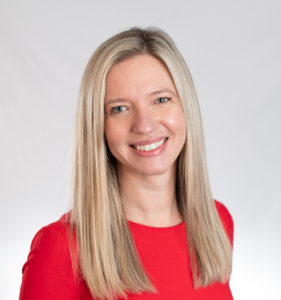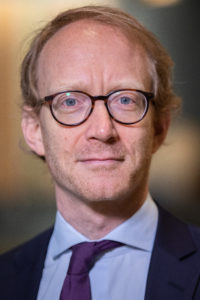
The current staffing crisis is the most challenging the senior care industry has ever experienced. It is leading to economic pressure on providers, burnout in the existing workforce and likely poor health and well-being outcomes for older adults.
Although accelerated by the pandemic, this crisis was already looming because of demographic shifts, ageism in society and our industry as well as poor talent pool nurturing. One of most efficient ways to address this issue from a system perspective is to educate on the potential lifelong careers our industry offers, which will, in turn, grow the number of entrants to the field.
One important question being asked of aging services providers is, “How do we get students interested in working with older adults?”
As a field, we assume that aging services are not attractive or “sexy” to emerging generations. However, that is not the case anymore. And that perceived lack of interest by younger people (those born between 1997 and 2012) is a source of real worry because our sector is in dire need of more employees — not only in healthcare positions, but in a range of functions, from finance and marketing to community management and hospitality. But research into the workplace qualities and characteristics valued by Gen Z workers suggests that aging services provides much of what they are looking for in an employer.

According to research by Roberta Katz, a senior research scholar at Stanford’s Center for Advanced Study in the Behavioral Sciences (CASBS), “…a typical Gen Zer is a self-driver who deeply cares about others, strives for a diverse community, is highly collaborative and social, values flexibility, relevance, authenticity and non-hierarchical leadership, and, while dismayed about inherited issues like climate change, has a pragmatic attitude about the work that has to be done to address those issues.”
Real-world experience supports the research. At LeadingAge, we lead a Summer Enrichment Program, which introduces college and grad students to the aging services sector through internships at various LeadingAge members. Participant evaluations of the 10-week paid internships over the past two summers reveal that Gen Zers want opportunities based on values and community. The evaluations indicated students were attracted to experiencing the non-profit sector, serving vulnerable populations, and aligning work with their values.
It’s time to change our mindset. Aging services are attractive to future generations, but it is not readily accessible. We must focus on creating paid quality field experiences that will expose diverse students to aging services. The return on investment will be evident in the intern-to-full-time employee conversion rate and, ideally, in the work product of a 10-week intern who offers a fresh perspective.
One SEP summer intern was the project manager of a system-wide computer recycling program. Another led the design and development of a diversity program. If an internship is designed well, a summer intern can be incredibly valuable.
How do we create these opportunities to expose the younger generation to aging services?
- Create the value proposition. Understand the current landscape of future leaders to help prioritize the importance of this effort for your organization.
- Obtain buy-in from your staff, residents and leaders by identifying the return on investment and benefits to your organization to engage and support the development of a new generation of diverse leaders for your community.
- Assess your organization’s current connections with universities/schools and the potential connections in your geographic location.
- Learn the critical driving forces for successful partnerships with universities.
- Develop field experience led by a strong preceptor with concrete projects, goals and leadership opportunities.
- Utilize the available resources and best practices to save time and promote a successful journey.
Together as a field, we can commit to providing paid quality field experiences to build the depth of future leaders for aging services. Learn how you can get started by watching this recording of Linked Senior’s #ActivitiesStrong Executive Edition webinar that took place Nov. 8.
If you are a LeadingAge member, you can sign-up to host a 2023 Summer Enrichment Intern.
Christy Kramer is the Vice President of Student Engagement and Workforce Partnerships at LeadingAge. In her role, she designs and develops opportunities for college and graduate-level students to learn and explore the field of aging services while developing University relationships with LeadingAge and its members.
Charles de Vilmorin is the CEO and co-founder of Linked Senior.
The opinions expressed in McKnight’s Long-Term Care News guest submissions are the author’s and are not necessarily those of McKnight’s Long-Term Care News or its editors.






